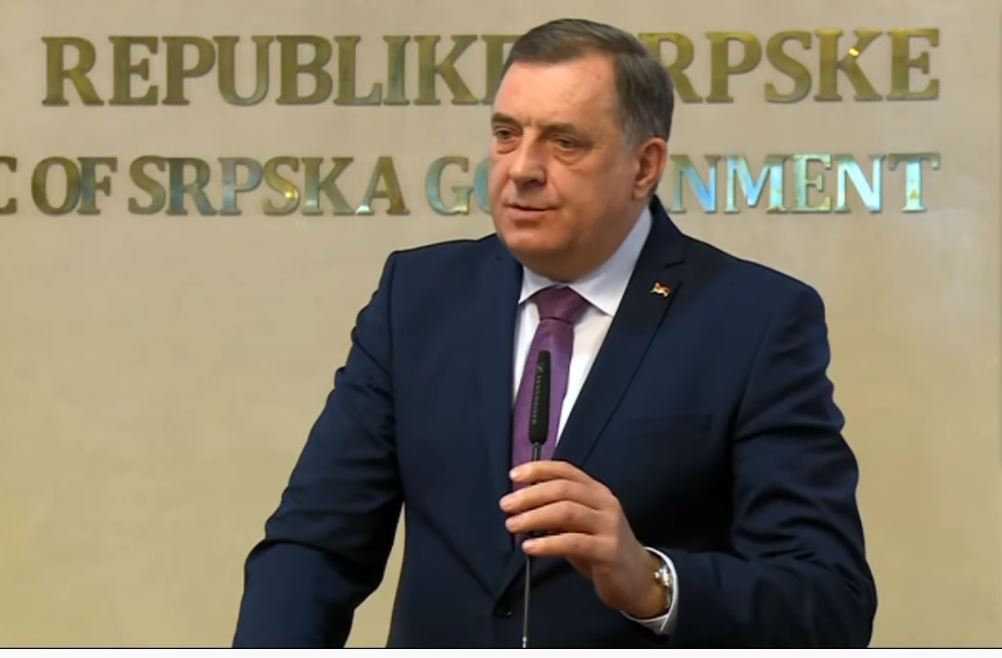
Bosnian Foreign Minister cannot act alone or represent any stances without previous agreement on that, Serb member and current Chairman of Bosnia and Herzegovina's tripartite Presidency Milorad Dodik said on Wednesday, a day after FM Bisera Turkovic's visit to Berlin and meeting with her German counterpart Heiko Maas.
“She is showing a capability of acting opposite to the Constitution of Bosnia and Herzegovina and the stances of the Presidency. The Presidency is the only place where the foreign policy of Bosnia and Herzegovina is being created,” Dodik said addressing media on Wednesday, following a meeting with the Serbian delegation.
He accused FM of ignoring the Presidency's and her own rule and “destructing Bosnia and Herzegovina and its institutions in this way.”
Turkovic was in an official visit to Germany on Tuesday where she spoke about the current situation in Bosnia and Herzegovina including the pandemic, migrant crisis and presence of the Office of the High Representative (OHR), who oversees the peace process implementation in the country.
She said there were strong pressures to close this institution but that she personally thinks it should “stay and get even stronger and more active role.”
Dodik said he informed the Serbian delegation led by Defence Minister Nebojsa Stefanovic about political developments in Bosnia and Herzegovina, reminding that entity parliament of Republika Srpska, Bosnia's Serb-majority region, will discuss “attempts of violation of the Dayton Peace Agreement by introducing a new High Representative without the procedures foreseen by Annex 10.”
“We want the Dayton Agreement to be obeyed as well as its Annex 10 which says that the (UN) Security Council can confirm a new representative if the signatories ask so,” said Dodik, the Serb member of Bosnia's tripartite Presidency, who is elected by voters in Republika Srpska (RS) entity.
He slammed the High Representative for his “unjust, criminal, mafia-type and arrogant behaviour towards RS,” adding that so far “73 competencies have been seized” from this entity it initially was assigned with by the Dayton Peace Agreement.
“We offer a concept of BiH stipulated by Dayton, if there is a will, and if there is not we will think about initiating our right foreseen by the UN Charter on the right to self-determination,” Dodik underlined.
The Dayton Peace Agreement is the international deal that ended the Bosnian 1992-95 war, while its Annex 4 contains the country's Constitution. The peace treaty initialled in November 1995 in Dayton, Ohio and signed a month later in Paris had introduced territorial changes in Bosnia and Herzegovina, dividing the country into two semi-autonomous regions – Serb-majority Republika Srpska and Bosniak-Croat shared Federation, with both entities and three major ethnic groups being represented in the central government at the state level.
To oversee the peace implementation in the country, the international community formed the Office of the High Representative, which remains present in the country to date.
Kakvo je tvoje mišljenje o ovome?
Učestvuj u diskusiji ili pročitaj komentare





 Srbija
Srbija
 Hrvatska
Hrvatska
 Slovenija
Slovenija







